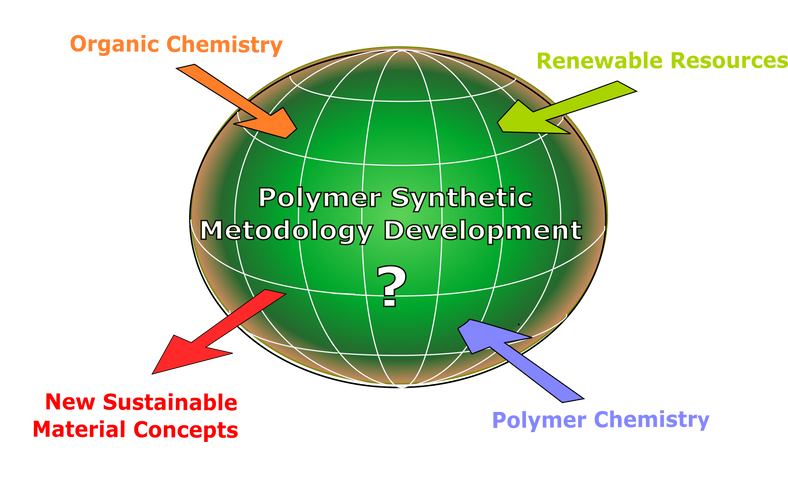Peter Olsén
About me

During my graduate studies focused mainly on the synthetic aspects of polymer science; synthesizing functional and degradable polymers, new sustainable pathways to functional monomers, click-chemistry, controlled radical polymerization, new concepts for multi-block copolymers, thermoplastic elastomers, and chemical recycling, in the group of Prof. Ann-Christine Albertsson at the Royal Institute of Technology (KTH) in Stockholm, Sweden. This work was followed by a two-year postdoctoral stay in Organic Chemistry in Prof. Björn Åkermark's research group at Stockholm University (SU), working on two distinctly different areas; water oxidation and total synthesis of proteins. A challenge he focused on was the synthesis of orthogonal cleavage linkers for protein ligation. To address this, we synthesized new types of orthogonal cleavable linkers through a new pathway for creating carbamates in water, using renewable functional five-membered carbonates combined with unprotected amino acids, work made possible by the synergistic combination of organic and polymer chemistry. After my work in Organic chemistry, I shifted focus by starting as a postdoctoral associate in Biocomposites in the research group of Prof. Lars Berglund at the Royal Institute of Technology (KTH). My research focused on the chemical modification of biopolymers, both from fibers and dissolved biopolymers. Examples include; synthesis of functional star-copolymers from lignin, system-dependent chemical modification of cellulose fibers, green interphase tailoring, interphase degradation behavior during processing. It is not enough to know the chemical transformation; we need to think about the complexity of the substrates and how we design the reaction system for the chemical transformation to occur.
Today my research is at the interphase of Polymer Chemistry, Organic Chemistry, and Materials Chemistry, focusing on polymer synthetic methodology development, developing new polymerization concepts, polymerization catalysis, new monomer synthetic pathways, and green chemical modification biopolymers. These efforts are towards synthesizing fully bio-based biocomposites, wood-nanotechnology, and high-performance polymeric materials. I am interested in addressing fundamental problems of complex nature, where many different aspects need to be considered simultaneously, under the vision of finding a simple solution. A recent example of this is the development of bio-based transparent wood (TW). Synthetically, the matrix needs a similar refractive index as the cellulose template for transparency. The monomer should diffuse into the cell wall to reduce scattering, polymerizable in the vicinity of the wood substrate. Ideally, the monomer pathway should be green and scalable for bio-based TW. Towards this aim, we created a scalable, green monomer pathway based on acrylic acid and limonene oxide, perfectly matched with the delignified wood substrate. In another example, a fully bio-based epoxy system, synthesized in water and selectively deconstructed via introducing two weak linkages, acetals and esters, to valuable molecules under a specific stimulus while simultaneously having good mechanical properties. This research paves the way towards fully recyclable thermoset biocomposite systems with infinite fiber recycling. Thus, renewability is not enough for tomorrow's new sustainable material solutions; we need to consider the system's complexity, the chemical pathways for the building blocks, and end-of-life management.
Courses
Polymeric Materials: Structure and Properties (KF2190), teacher